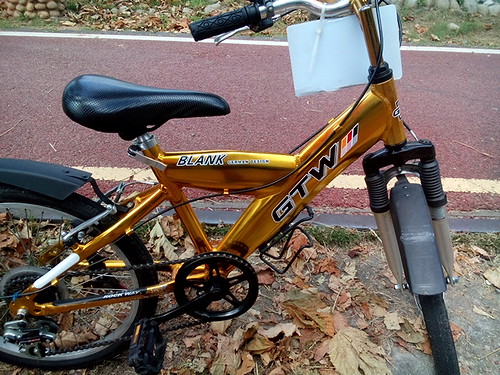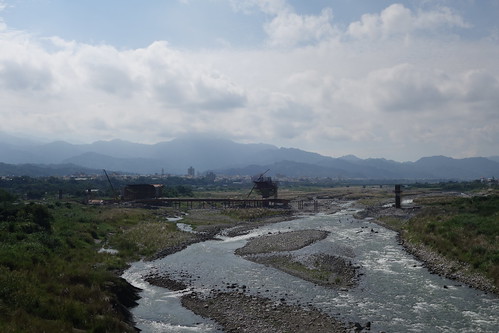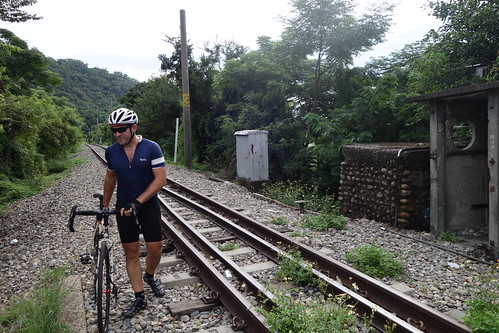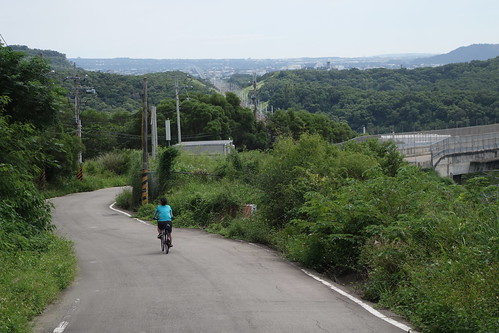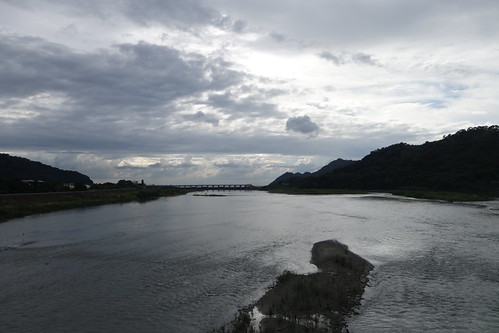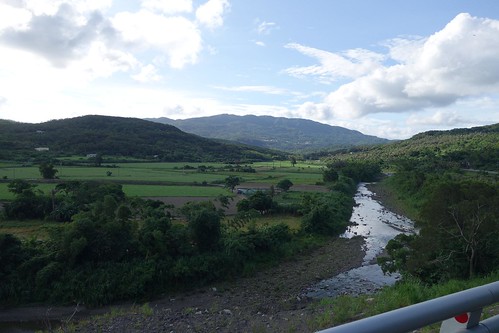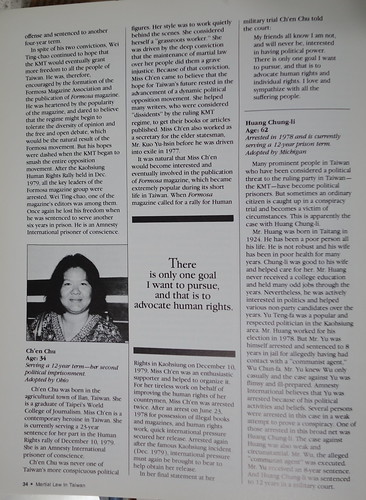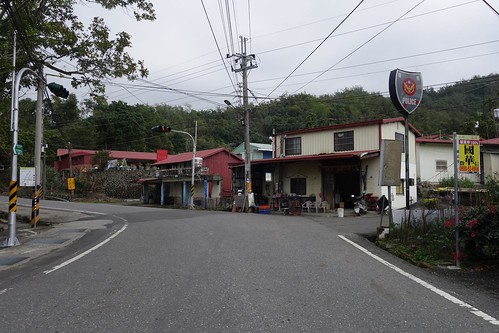The Shigang Dam against a steel typhoon sky. The dam's north abutment (right) was destroyed when the 921 quake lifted the entire dam 12 meters but left the north abutment in its original location.
Rupert Hammond-Chambers writes in the WSJ under the title
Taiwan's President Must Prove She Can Lead:
In fact, Ms. Tsai’s primary external challenge so far has been Chinese intransigence to her election. Along with the constant drumbeat of Chinese military modernization, China has poached a diplomatic ally, had Taiwan citizens deported from third countries to China and reduced by up to one-third the number of Chinese tourist groups visiting Taiwan.
Yet China’s provocative behavior has been calibrated to avoid a downward spiral of exchanges with Taiwan from which it would be difficult to recover without losing face, while at the same time to avoid rousing the U.S. into making a show of support for its longtime ally. Ms. Tsai has been careful to refuse China’s “one China” policy, but she has also stated that no outcome is off the table so long as Taiwan gets to determine its own future. This new normal in cross-Strait relations is unlikely to change in the next six to 12 months, with both sides focusing on higher priorities.
In the top paragraph, two of the assertions are just plain wrong. China did not poach a diplomatic ally in Gambia --
it had nothing to do with Taiwan at all -- and the deportation policy was settled on long before Tsai came into office. It is one of the conventional double standards of media and commentators to attribute all perceived negative moves by China to the desire to punish the DPP, never the KMT. *sigh*
The second paragraph shows that Hammond-Chambers, like many who watch Tsai, doesn't get her style.
The leadership style of Tsai Ing-wen is characterized by a complete lack of drama. Tsai is quietly effective. Many observers confuse this lack of drama with a lack of leadership. False. Tsai does not need to
demonstrate leadership. She simply leads. Part of this also is that
leadership in the two societies is different -- simply put, in Taiwan a leader is the one who gives orders that others must obey, in the US a leader is one who proposes ideas that others choose to follow. Fundamentally, Tsai is leading, according to her cultural practices.
One thing that's really sharp is H-C's observation that China is constrained by the US -- if it harms the Taiwan relationship too much, it might make the US more active in supporting Taiwan.
Hammond-Chambers argues that Taiwan needs the TPP, but hopefully Congress will kill that corporate power grab, which will be a disaster for Taiwan's exports, environment, economy, and national health insurance system. What Tsai should be doing is negotiating with the intention of never joining. I am not of the school that trade treaties are absolute goods, and this one is a destructive stinker.
Tricky Taipei publishes
the 5 Least Business-Friendly Practices in Taiwan, in response to another one of Ralph Jennings' Forbes laughers. Tricky discusses things that many of us have seen over the years, though I can't understand why anyone thinks Gogoro scooter is so great. You just have to look at the pictures and it's obvious: Taipei. Heavy on the styling and light on the substance -- can you put 3 sacks of bamboo shoots and tie six large lead pipes across the rear? Can it carry four natural gas tanks? Doesn't look like it. At present it is an
overpriced toy redolent of the Taipei moneyed mentality -- if you are looking for the real thing, IMHO try something like a
Kymco Queen 3.0, which I drove
a couple of years ago on Green Island. Why not support that? But then -- it lacks the kind of status associations that brands attempt to create. To me Gogoro is what happens when things are designed as brands from the start: they are but overpriced status markers with little real worth, which describes essentially the entire world that branding creates.
Speaking of that, Mark Stocker, who works to create the branded world that created the OEM system in Taiwan by offshoring jobs from developed countries, writes in an irony-free post on how
Taiwan doesn't know what it wants to be when it grows up (foreigners who write in these tropes of Taiwan's immaturity really set me off, brace yourself). Stocker's been peddling this stuff for ages (
here), and his answer is, of course, positive thinking and branded firms (in an astonishing coincidence, Stocker sells branding advice). Stocker attacks the "pessimism" over Taiwan's future -- a future that itself is the creation of the sick surfaces-are-everything branded world in which "things are constantly asserted that smart people know are false" that Stocker has fought to build, and writes:
It surprises me that instead of supporting the world’s first fully-automated toll collection system (ETC), we attack the system for minor technical issues on launch day. Meanwhile, few people recognized that what Taiwan had achieved was a world’s first that could lead to interest in the technology from countries around the world.
The world's first?
Wiki says it was Norway in the 1980s, while the tech itself was first proposed in the 1950s. "Minor technical issues on launch day" was not why the ETC was attacked. This kind of misrepresentation is why so many of us despise the branded world. Stocker simply ignores over all the problems with the ETC, especially when it was first implemented -- so obviously a rip-off designed to line someone's pockets. Initially the cost to drivers was high, and the bidding process on it stank. Who on earth could support that? In fact it was boycotted by consumer groups and carriage firms, who were furious that the MOTC slashed their subsidies via ETC. Then came the accusation that Far Eastern Transportation Corp had gotten the bid through bid-rigging and leaked documents,
with the usual indictments. No wonder consumers are pessimists! Sure, after a decade, ETC kinda works. Stocker writes:
Anyone of these companies might have achieved what Sony achieved for the nation of Japan, but they were never given a chance because we the public didn’t support them. To the converse, we slowed and worse yet stopped their ascent. By jumping on the ‘criticize’ bandwagon, we have collectively crushed the very ideas and opportunities that could have driven the next generation of economic opportunities for this nation.
No Mark, it was not our criticism and lack of support that stopped them from becoming the next Sony. Rather, it was their corruption, their preference for surfaces over reality, and their indifference to the needs of Taiwan that has kept so many big firms from emulating the success of Sony for Taiwan.
I don't want to end this post on a negative note, so let me guide you to
Martin Hiesboeck's excellent open letter to Tsai Ing-wen on 5 Bold Steps for Taiwan's future, including:
5) Last but certainly not least, swing open the gates and welcome international talent. Everyone with a science degree, some achievement in business, or money to invest, should be given free work permits and unlimited visas. Perhaps it's time to abolish work permits altogether. Why do 'foreigners' need separate ID cards? If they have worked and paid taxes for 5 years, they should automatically be eligible to apply for a Taiwanese passport. It is a farce that 90-year-old retired professors have to leave the country in which they have spent their entire lives every 3 months just because of antiquated immigration laws. Taiwan is not a Han-Chinese nation. It has one of the lowest birth rates in the world. The only way to keep up with your neighbors economically is by building the most diverse workforce in Asia. Taiwan's leading companies are stifled by lack of international talent, just ask their marketing teams. Foreigners meet unnecessary obstacles every step of the way, from work permits to ID cards to access to bank credit. Taiwan's universities cannot find good teaching staff, because salaries are ridiculously low and restrictions on hiring foreigners extremely cumbersome. Learn from Sweden, which welcomes talented people from around the world with open arms and therefore has the most vibrant tech sector outside the US.
To all those I would add that Taiwan needs to re-open its voc-ed institutions, which supplied so many of its small- and medium-sized business entrepreneurs in the heyday of the Miracle Economy.
Many other things could be said, but this post is already too long... back to work tomorrow *groan*.
_____________
Daily Link:
_______________________
[Taiwan] Don't miss the comments below! And check out my blog and its sidebars for events, links to previous posts and picture posts, and scores of links to other Taiwan blogs and forums!
